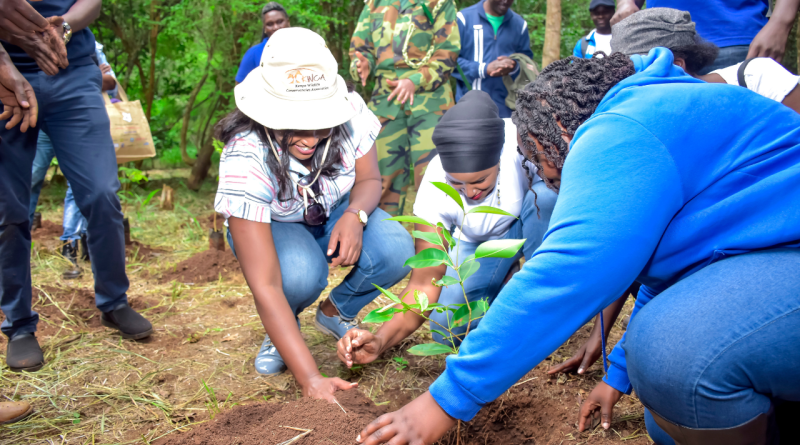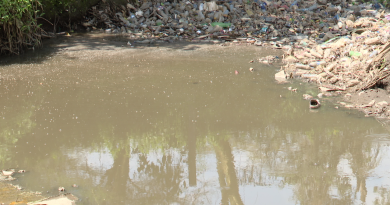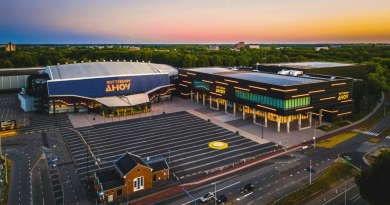Greening Africa: Continent Leads Global Efforts in Land Restoration and Sustainability
By Carolyne Tomno
As the world gears up for the 2024 United Nations conferences on climate, biodiversity, and desertification, Africa has emerged as a key player in restoring degraded landscapes, conserving biodiversity, and building sustainable livelihoods.
The “GLF Africa 2024 Hybrid Conference: Greening the African Horizon,” held in Nairobi and online by the Global Landscapes Forum (GLF), brought together thousands of participants from across the globe, including local communities, Indigenous Peoples, youth leaders, scientists, and policymakers. Together, they highlighted Africa’s unique potential to create a resilient and equitable future through its landscapes.
“Together, we have the power to green Africa and beyond – for securing livelihoods, food security, climate resilience, and biodiversity conservation. Land and community are the common denominators for achieving these goals,” said Éliane Ubalijoro, CEO of the Center for International Forestry Research and World Agroforestry (CIFOR-ICRAF). “Though the climate crisis presents immense challenges, Africa holds immense potential with its rich local and Indigenous knowledge, youth leaders, brilliant minds, and emerging technologies.”
As the world gears up for the 2024 United Nations conferences on climate, biodiversity, and desertification, Africa has emerged as a key player in restoring degraded landscapes, conserving biodiversity, and building sustainable livelihoods. The “GLF Africa 2024 Hybrid Conference: Greening the African Horizon,” held in Nairobi and online by the Global Landscapes Forum (GLF), brought together thousands of participants from across the globe, including local communities, Indigenous Peoples, youth leaders, scientists, and policymakers. Together, they highlighted Africa’s unique potential to create a resilient and equitable future through its landscapes.
“Together, we have the power to green Africa and beyond – for securing livelihoods, food security, climate resilience, and biodiversity conservation. Land and community are the common denominators for achieving these goals,” said Éliane Ubalijoro, CEO of the Center for International Forestry Research and World Agroforestry (CIFOR-ICRAF). “Though the climate crisis presents immense challenges, Africa holds immense potential with its rich local and Indigenous knowledge, youth leaders, brilliant minds, and emerging technologies.”
A Showcase of African Innovation
In collaboration with the Food and Agriculture Organization (FAO), the GLF introduced the Food Systems, Land Use, and Restoration (FOLUR) Impact Program, a new framework aimed at accelerating sustainable production, restoring ecosystems, and alleviating pressure on forests. This initiative, piloted in countries such as India, Kenya, Nicaragua, Nigeria, and Vietnam, brings experts and landscape actors together to explore integrated landscape management and its impact on smallholder farmers and food value chains.
Elijah Mboko, National Technical Specialist at FAO Kenya, emphasized the importance of integrating new tools and approaches with existing systems. “We don’t want to start from zero or work in isolation; we want to strengthen what is already working on the land,” he stated.
The GLF also launched an AI hub, promoting community-driven artificial intelligence solutions. This platform aims to connect landscape actors, fostering interdisciplinary collaboration and inclusive knowledge sharing. Catherine Nakalembe, Associate Research Professor at the University of Maryland, stressed the need for data-driven, context-aware AI models that reflect Africa’s unique landscapes, particularly for small-scale agricultural practices.
Strengthening Tree Planting Efforts
Restoring forests is a key aspect of Africa’s sustainability efforts, and effective tree planting requires well-developed tree seed and seedling delivery systems. A session hosted by CIFOR-ICRAF tackled the challenges of tree planting, such as limited technical capacity and coordination among stakeholders. Panelists advocated for the development of demand-driven native tree species, community engagement, and broad knowledge-sharing through stakeholder networks like the Transformative Partnership Platform (TPP).
Youth as Africa’s Future
With 70% of Africa’s population under the age of 35, speakers emphasized the critical role young people must play in shaping the continent’s future. “The biodiversity and climate crisis requires a whole-of-society approach – everyone must take action,” said Simangele Msweli, Senior Manager for the Youth Leadership Program at the African Wildlife Foundation.
During a spoken-word performance, writers and activists Felicity Asiibi Akwa and Taiye Owo declared that Africa is a land of culture, opportunity, and potential. They urged for an inclusive approach to land restoration, ensuring no one is left behind.
Deborah Oyugi, Manager at Youth Initiative for Land in Africa (Yilaa), echoed the call for African solutions to African challenges. “There is a need to decolonize how we do climate justice and land restoration,” she said, emphasizing the importance of including women in decision-making and solution-building processes.
This landmark conference showcased Africa’s capacity to lead global sustainability efforts, combining traditional knowledge with modern innovation to pave the way for a greener, more resilient future.
A Showcase of African Innovation
In collaboration with the Food and Agriculture Organization (FAO), the GLF introduced the Food Systems, Land Use, and Restoration (FOLUR) Impact Program, a new framework aimed at accelerating sustainable production, restoring ecosystems, and alleviating pressure on forests. This initiative, piloted in countries such as India, Kenya, Nicaragua, Nigeria, and Vietnam, brings experts and landscape actors together to explore integrated landscape management and its impact on smallholder farmers and food value chains.
Elijah Mboko, National Technical Specialist at FAO Kenya, emphasized the importance of integrating new tools and approaches with existing systems. “We don’t want to start from zero or work in isolation; we want to strengthen what is already working on the land,” he stated.
The GLF also launched an AI hub, promoting community-driven artificial intelligence solutions. This platform aims to connect landscape actors, fostering interdisciplinary collaboration and inclusive knowledge sharing. Catherine Nakalembe, Associate Research Professor at the University of Maryland, stressed the need for data-driven, context-aware AI models that reflect Africa’s unique landscapes, particularly for small-scale agricultural practices.
Strengthening Tree Planting Efforts
Restoring forests is a key aspect of Africa’s sustainability efforts, and effective tree planting requires well-developed tree seed and seedling delivery systems. A session hosted by CIFOR-ICRAF tackled the challenges of tree planting, such as limited technical capacity and coordination among stakeholders. Panelists advocated for the development of demand-driven native tree species, community engagement, and broad knowledge-sharing through stakeholder networks like the Transformative Partnership Platform (TPP).
Youth as Africa’s Future
With 70% of Africa’s population under the age of 35, speakers emphasized the critical role young people must play in shaping the continent’s future. “The biodiversity and climate crisis requires a whole-of-society approach – everyone must take action,” said Simangele Msweli, Senior Manager for the Youth Leadership Program at the African Wildlife Foundation.
During a spoken-word performance, writers and activists Felicity Asiibi Akwa and Taiye Owo declared that Africa is a land of culture, opportunity, and potential. They urged for an inclusive approach to land restoration, ensuring no one is left behind.
Deborah Oyugi, Manager at Youth Initiative for Land in Africa (Yilaa), echoed the call for African solutions to African challenges. “There is a need to decolonize how we do climate justice and land restoration,” she said, emphasizing the importance of including women in decision-making and solution-building processes.
This landmark conference showcased Africa’s capacity to lead global sustainability efforts, combining traditional knowledge with modern innovation to pave the way for a greener, more resilient future.
————ends————-




